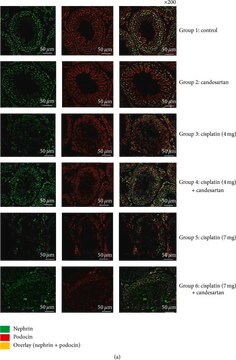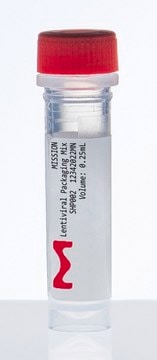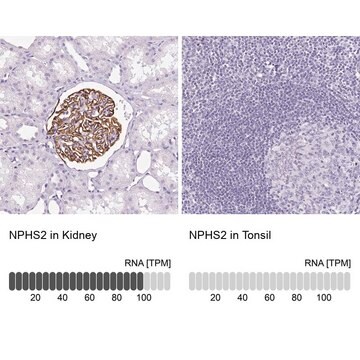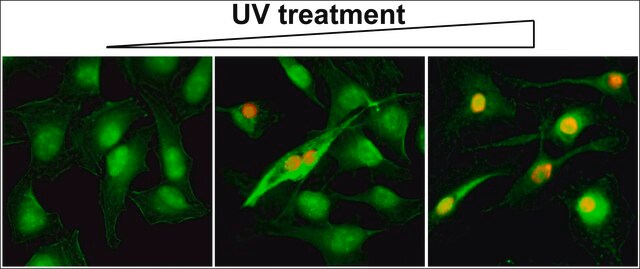MAB4381C3
Anti-TRA-1-81 Antibody, clone TRA-1-81, Cy3 conjugate
clone TRA-1-81, from mouse, CY3 conjugate
Sinónimos:
Podocalyxin, GCTM-2 antigen, Gp200, Podocalyxin-like protein 1
About This Item
Productos recomendados
biological source
mouse
Quality Level
conjugate
CY3 conjugate
antibody form
saturated ammonium sulfate (SAS) precipitated
antibody product type
primary antibodies
clone
TRA-1-81, monoclonal
species reactivity
human
technique(s)
immunocytochemistry: suitable
isotype
IgM
NCBI accession no.
UniProt accession no.
shipped in
wet ice
target post-translational modification
unmodified
Gene Information
human ... PODXL(5420)
General description
Specificity
Immunogen
Application
Stem Cell Research
Pluripotent & Early Differentiation
Quality
Immunocytochemsitry Analysis: A 1:100 dilution of this antibody detected TRA-1-81 in H9 human embryonic stem cells.
Target description
Physical form
Storage and Stability
Analysis Note
H9 human embryonic stem cells
Other Notes
Disclaimer
¿No encuentra el producto adecuado?
Pruebe nuestro Herramienta de selección de productos.
Storage Class
12 - Non Combustible Liquids
wgk_germany
WGK 2
flash_point_f
Not applicable
flash_point_c
Not applicable
Certificados de análisis (COA)
Busque Certificados de análisis (COA) introduciendo el número de lote del producto. Los números de lote se encuentran en la etiqueta del producto después de las palabras «Lot» o «Batch»
¿Ya tiene este producto?
Encuentre la documentación para los productos que ha comprado recientemente en la Biblioteca de documentos.
Nuestro equipo de científicos tiene experiencia en todas las áreas de investigación: Ciencias de la vida, Ciencia de los materiales, Síntesis química, Cromatografía, Analítica y muchas otras.
Póngase en contacto con el Servicio técnico








